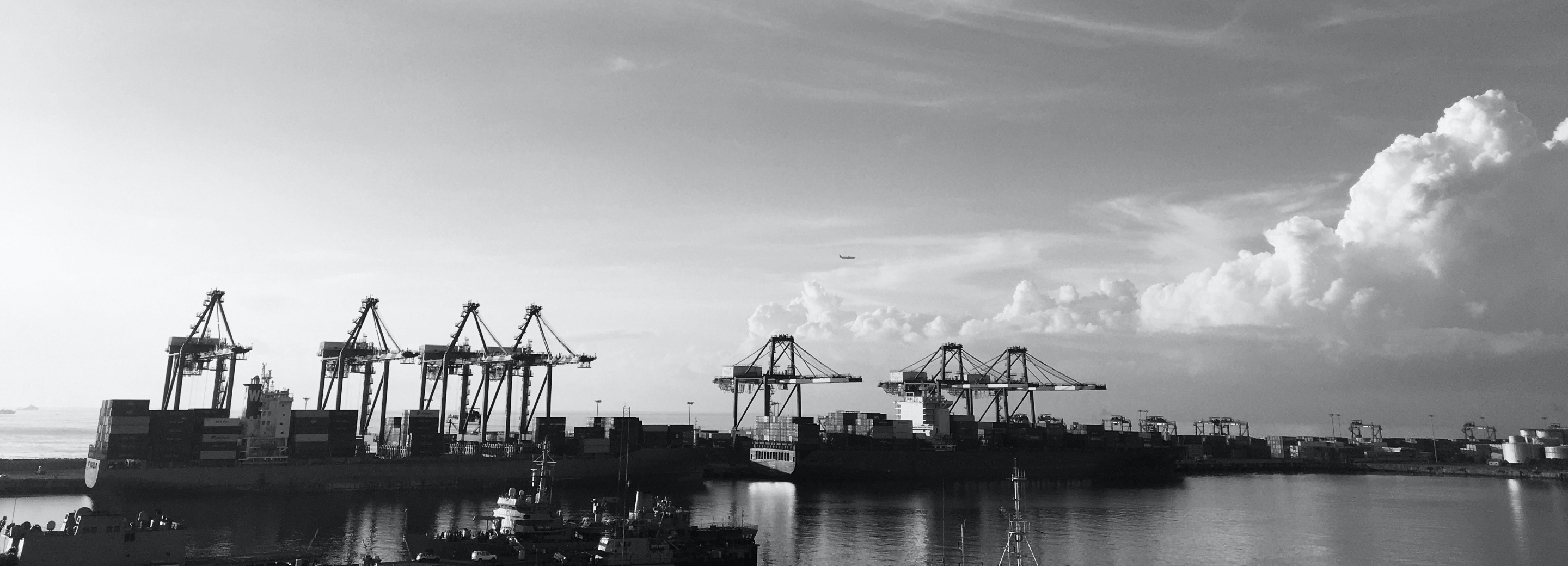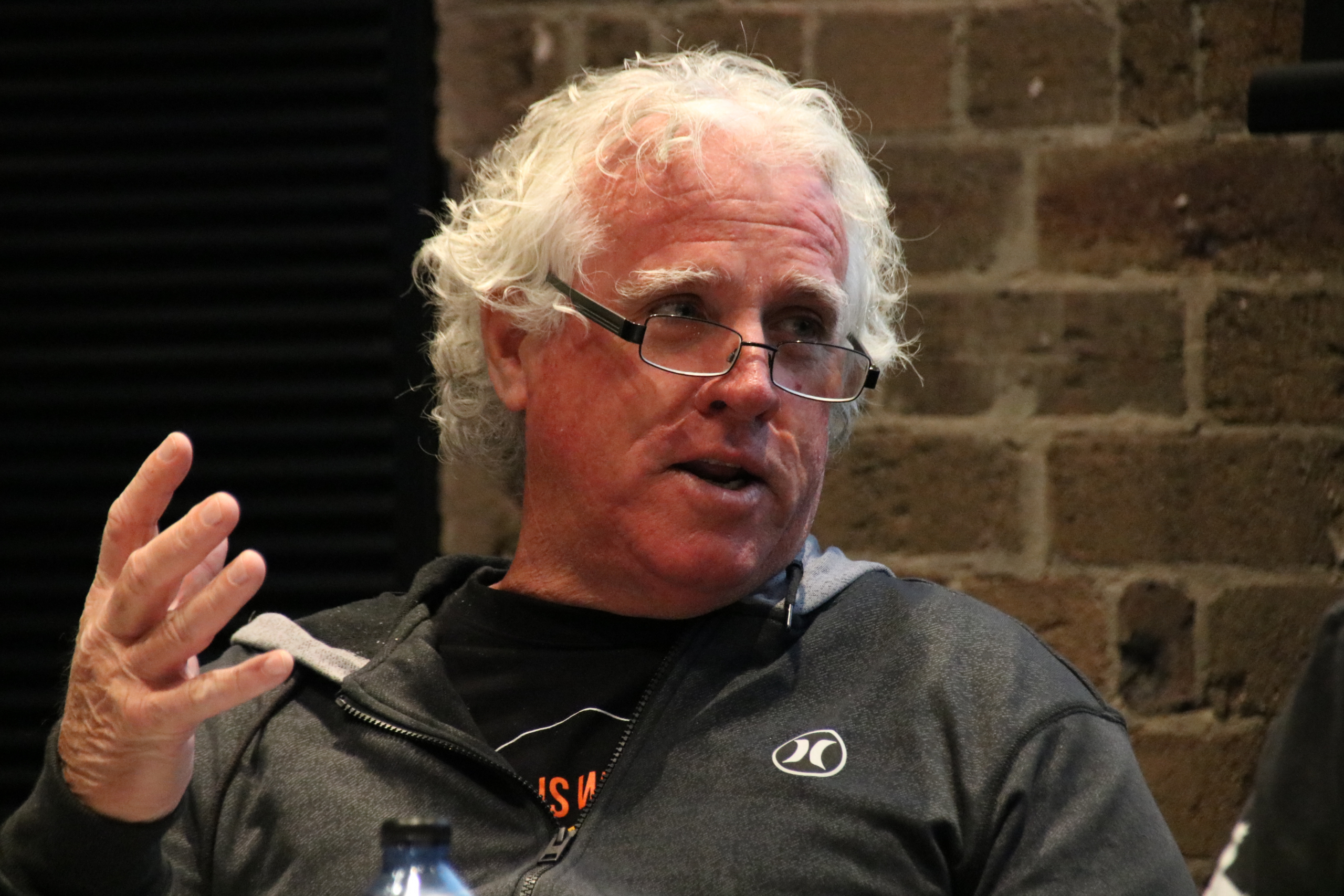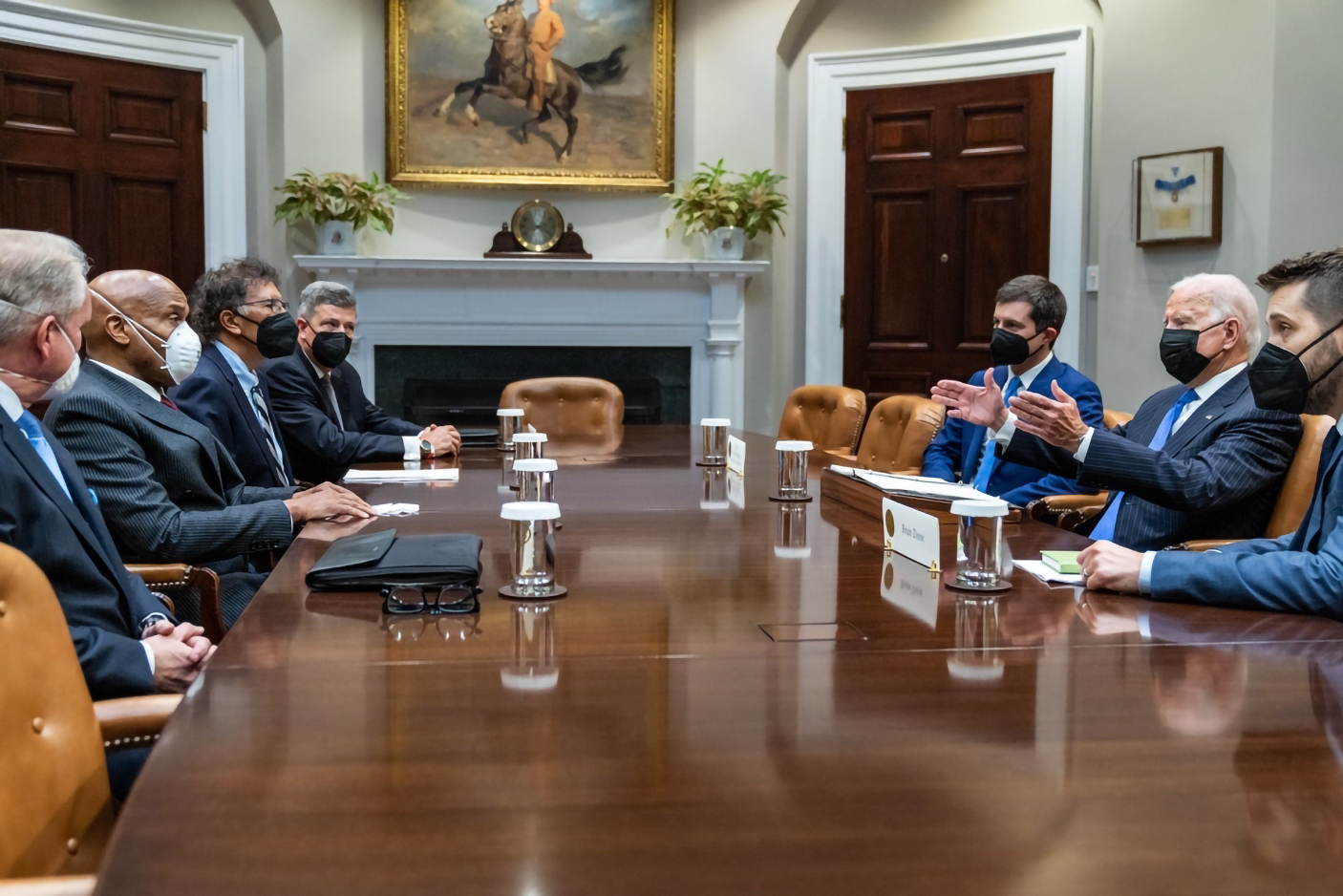
Dockers, seafarers, and road transport workers are challenging the narrative from capital that they are the cause of supply chain disruption and potential delays in shoppers’ holiday orders.
Rampant price gouging, expert manipulation of scheduling, and the unchecked cartel behaviour of a global shipping industry built on the suffering and misery of vulnerable, exploited seafarers has collided with a massive upswing in consumer demand and truck driver shortages worldwide to cause growing port and road congestion in many parts of the world.
“Transport workers are not responsible for the current global supply chain disruption and any associated delays or shortages experienced by the public this holiday season. The disruptions and delays we see are caused by manipulative and opportunistic cartel behaviour on the part of shipping companies as well as the failure by many governments to invest in adequate road and rail transport infrastructure beyond our ports,” said Paddy Crumlin, ITF President, Dockers’ Section chair, and Fair Practices Committee co-chair.

“It’s the dockers, seafarers and road transport workers who are the ones working longer days and taking on more shifts to clear the backlog of containers at ports around the globe,” Mr Crumlin said.
“While consumers and small business have a right to question why shipping prices are spiralling and delays are crippling our ports, we must not allow big business and conservative governments to scapegoat the hardworking dockers and other transport workers who are doing their best to keep things moving,” said Crumlin.
“Stevedoring companies and international ship owners have been disguising and misrepresenting the truth for almost two years. Under the cover of COVID, they have been reaping some of the highest profit margins in their history and to protect these profits they have been prepared to attack and vilify their own workers,” Mr Crumlin added.
Seafarers concerned poor planning, container mismatch undermines Covid economic recovery
ITF Seafarers’ Section chair and Fair Practices Committee co-chair David Heindel said “The big problem we’ve got in shipping right now is that we don’t have the right number of containers in the right places. There are many more containers sitting in consumer country ports and transport depots full of goods than the land transport systems there can process, and too few empty containers back in goods production hubs like China ready for new orders. Unfortunately, this is a dilemma of the charterers and logistics companies’ own making.”
The impact of the shipping industry’s miscalculations early in the pandemic to reduce schedules in anticipation of lower consumer demand had proved pivotal to causing the current crisis and should not be forgotten, he said.
Heindel said predictions made months ago made clear the potential scale of the oncoming crisis, such as from John Fossey, Drewery Shipping Consultants’ senior analyst of container equipment:
“I’m afraid the shortages are likely to last until the end of the year, and the lack of containers is due to the carriers’ response to Covid – firstly, the initial blanking of voyages, followed by carriers deploying larger ships and extra loaders to cater for the unexpected demand, which created a vicious cycle of yard congestion in the ports.
“In response to that congestion, carriers began to cut and run at ports – which meant not loading empties – and that only made the port congestion worse.”
Mr Fossey explained: “It’s easy for carriers to switch-on capacity, but nowhere near as easy for ports. […]
“It’s clear the whole year will be affected by port congestion – the container cycle times need to get back to pre-Covid levels, but this won’t be likely until the end of this year and possibly into 2022.”
“As far back as April shipping experts were warning we would be experiencing large-scale supply chain disruption, potentially all the way through to the end of the year. Frankly, the logjam is no surprise to those of us in the industry,” said Heindel.
“This mismatch has come at the worst time possible to meet surging consumer demand and support the fragile economic recoveries we are starting to see around the world,” said Heindel.
“The scarcity of containers in China is concerning, especially in combination with the increasing demand for shipping that has resulted in price-gouging and the cost of cargo transport skyrocketing. We need to see those profits used to get the system back on track and return empty containers to the right places, fast.”
Heindel welcomed news out Tuesday from French shipping giant CMA-CGM of a $22m programme to pay cargo owners up to $200 for each containers picked up within an eight-day window in an effort to clear southern Californian port space.
Dockers won’t be ‘fall guys’ for corporate choices
ITF Dockers’ Section vice-chair and ILWU International President William E. Adams said ITF dockers’ unions were ready to publicly challenge the false narrative that blamed transport workers.
“Rather than using supply chain issues opportunistically, companies need to take responsibility for disruptions caused by their own failures. We didn’t make those choices, they did,” said Adams.

“Now is not the time to peddle false narratives about this crisis to drive old agendas or attack the pay and conditions of dock workers.”
“We reject any assertion that replacing a loyal and efficient workforce now with unreliable fully automated terminals now would somehow avoid issues caused by decisions made by shipping companies some months ago.
“Dockers, like seafarers and road transport workers are working their hardest to unclog the supply chain disruption and serve the public. But instead of thanking them, some seem to be accusing transport workers of causing this crisis. This is not only disappointing; it is insulting,” said Adams.
ENDS
Notes:
- The original statement by the ITF's Fair Practices Committee Steering Group is available here (PDF)
